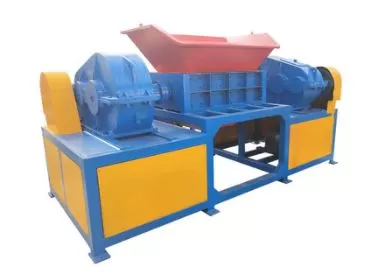As the CEO of Amige, I’m often asked about the state of plastic recycling in China. It’s a hot topic, especially considering our position as a leading manufacturer of plastic crushers and shredders. So, let’s dive into this question and uncover some insights.

Recent reports suggest that China is home to over 3,000 plastic recycling plants. These facilities range from small, family-run operations to large, industrial complexes. This number is constantly evolving, reflecting China‘s dynamic approach to recycling and waste management.
In this post, I’ll share my perspective on the growth and distribution of these plants, and what it means for businesses like ours and the global recycling industry.
What’s the Distribution of These Recycling Plants?
The distribution of recycling plants in China is fascinating. Coastal provinces like Guangdong and Zhejiang lead the pack due to their proximity to export markets and access to imported waste materials. However, with recent changes in China‘s waste import policies, there’s a shift towards inland provinces.
How Has China‘s Recycling Policy Affected the Industry?
China‘s recent ban on foreign waste imports has been a game-changer. Initially, it caused a stir, but it’s now seen as a positive move for the domestic recycling industry. This policy has spurred growth in local recycling efforts and the establishment of more advanced recycling facilities.
What Role Does Technology Play in These Plants?
The level of technology in these plants varies widely. Some are still using basic methods, while others have embraced cutting-edge technologies. As a company that provides sophisticated plastic crushers and shredders, we’ve seen a growing interest in advanced machinery. This shift is crucial for improving efficiency and environmental impact.
Are There Regional Differences in Recycling Efficiency?
Yes, and it’s quite significant. Plants in more economically developed regions tend to be more efficient and technologically advanced. This disparity is something the Chinese government and industry leaders are actively working to address, aiming for more uniform recycling standards across the country.
What’s the Impact on the Global Recycling Market?
China‘s recycling industry has a massive impact on the global market. The country’s shift towards processing more domestic waste and investing in high-tech recycling solutions is reshaping global recycling flows and encouraging other countries to develop their own recycling capabilities.
The growth of the recycling industry in China has significant environmental and socio-economic implications. On one hand, it’s reducing the amount of waste ending up in landfills and helping combat pollution. On the other hand, it’s creating jobs and fostering a culture of environmental responsibility.
Conclusion
In summary, the number of plastic recycling plants in China is impressive and reflects the country’s commitment to tackling plastic waste. As a key player in this industry, I’m excited to see how these developments will shape the future of recycling and create opportunities for companies like Amige. The journey to a more sustainable future is long, but with each recycling plant, China is taking a step in the right direction.
